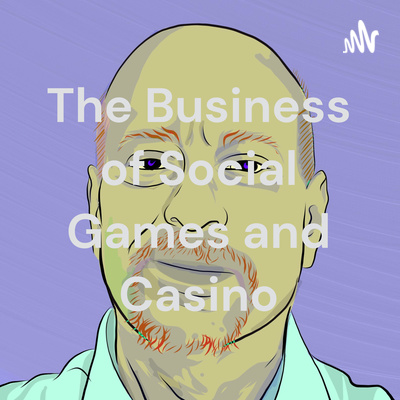
The Business of Social Games and Casino
By Lloyd Melnick

The Business of Social Games and CasinoMar 03, 2021

Riley
Riley
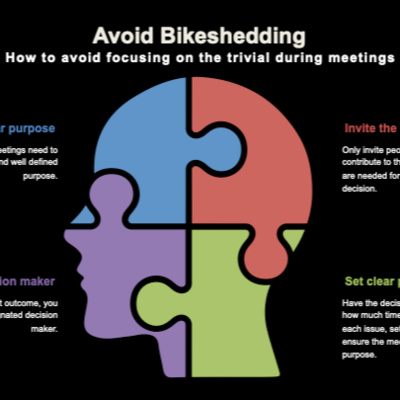
How to avoid meetings about the trivial, aka bikeshedding
Key takeaways
- Bikeshedding is the tendency we have to spend excessive time on trivial matters in meetings, often glossing over important ones.
- Bikeshedding is damaging because it wastes very valuable time and, more importantly, leads to insufficient discussion of important issues.
- To avoid bikeshedding, set a clear purpose for all meetings (and eliminate conversations about other issues), only invite necessary people, appoint a decision maker and have the decision maker set clear parameters for the meeting.
This episode is also available as a blog post: http://lloydmelnick.com/2020/06/17/how-to-avoid-meetings-about-the-trivial-aka-bikeshedding/

Lifetime Value Part 30: Why clumpiness should be one of the KPIs you focus on
Key takeaways
- We normally focus on analyzing recency, frequency and monetization of the customer but by adding a new KPI, clumpiness, we get a much better understanding of their expected value.
- Clumpiness refers to the fact that people buy in bursts and that those customers could be extremely valuable.
- Clumpiness can help you better segment players, predict VIPs and target your reactivation efforts and spend.
This episode is also available as a blog post: http://lloydmelnick.com/2020/06/24/lifetime-value-part-30-why-clumpiness-should-be-one-of-the-kpis-you-focus-on/

Why Evo’s $2 billion+ acquisition of NetEnt is more important (to both iGaming and social casino) than you think
Key takeaways
- Evolution Gaming, the largest Live Dealer provider, recently announced a bid to acquire NetEnt, the largest slots provider for $2+ billion.
- The deal, in that Evo is the acquirer, shows that Live Dealer is eclipsing slots in the casino ecosystem.
- For real money operators, they need to ensure they balance resources around both Live Dealer and slots while social casino companies need to figure out the best way to embrace this opportunity.
This episode is also available as a blog post: http://lloydmelnick.com/2020/07/01/why-evos-2-billion-acquisition-of-netent-is-more-important-to-both-igaming-and-social-casino-than-you-think/

Customer analytics tips for gaming companies
Key takeaways
- People who wander around a retail location spend more than ones who immediately find what they are looking for and retailers optimize to create this jiggliness. Online casinos and games can also build in jiggliness so players find new games and offerings rather than simply quickly go to the one they are looking to play.
- While satisfaction with customer service positively impacts profitability, the relationship is not linear. Improvements have a strong impact when players are highly dissatisfied (and that is corrected) or when customers with great service make further improvements, companies in the middle often do not see a positive ROI on CS improvements.
- A relationship between two variables does not show one is causing the other, to have causation there must be a relationship plus temporal antecedence plus the absence of a third variable driving both factors.
This episode is also available as a blog post: http://lloydmelnick.com/2020/07/15/customer-analytics-tips-for-gaming-companies/
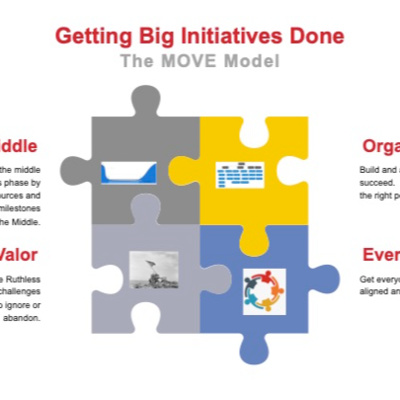
How to get your big initiatives done
Key takeaways
- Many important initiatives, from new products to operational efficiency, bog down and die in the middle phase. They initially have momentum but stall once the initial burst dies down.
- To MOVE projects through this middle phase, the Middle element needs a clear and concrete strategy and you need an Organizational structure with capacity to complete the initiative.
- The final keys to getting through the middle phase are Valor, making tough decisions and prioritizing the initiative, and getting Everyone involved.
This episode is also available as a blog post: http://lloydmelnick.com/2020/07/29/how-to-get-your-big-initiatives-done/

How Operations Analytics can help online gaming companies
Key takeaways
- While Operational Analytics are a focus primarily in retail and traditional businesses, there are many best practices that iGaming and social game companies can leverage.
- Forecasting is central to generating and earmarking resources but is often a challenge for game companies, rather than trying to create a point forecast create a range based on moving averages and looking at standard deviation. For new products, create a simulation that will show the distribution of potential outcomes and the risks and rewards possible.
- You need one, and only one, distinct goal and then optimize your strategy around that goal; it’s impossible to optimize for multiple goals. Use constraints to incorporate what used to be additional goals.
This episode is also available as a blog post: http://lloydmelnick.com/2020/08/12/how-operations-analytics-can-help-online-gaming-companies/

The risks of market research
Key takeaways
- A sole reliance on customer input and feedback, traditional market research, is built on a model of human decision making that assumes humans are rational, while in practice we are not.
- Not only do people provide a response inconsistent with their actions, they often do not understand the underlying causes of their behavior.
- Use one or multiple tools that show actual decision making, such as ABn testing or looking at reactions to similar initiatives in adjacent industries, rather than relying on what customers believe is their preference.
This episode is also available as a blog post: http://lloydmelnick.com/2020/08/26/the-risks-of-market-research/

People Analytics for Online Gaming
Key takeaways
- You need to align performance evaluations with the underlying factors that create success; deconstruct what leads to the outcomes you want and then assess people on those factors.
- Some common problems when evaluating people include context (attributing results to a person when the environment drove success or failure), interdependence (assessing on an individual level a result that was driven by a team), self-fulfilling prophecies (people perform consistent with expectations) and reverse causality (we attribute causality to correlation, even though the factors may not be related or may be in the other direction).
- You should assess how your team or company works as a network, looking at the relationships, and then encourage and grow ones that lead to desired outcomes.
This episode is also available as a blog post: http://lloydmelnick.com/2020/09/09/people-analytics-for-online-gaming/

How to manage your customer service to have the biggest impact on your profits
Key takeaways
- Data shows that trying to create an exceptional customer experience has virtually no impact on loyalty and engagement, however, reducing the effort the customer must exert does improve loyalty,
- The best way to measure this effort is CES score, which is based on a statement, “the company made it easy for me to handle my issue,” after which the customer is asked to answer (on a 1–7) whether they agree or disagree with that statement.
- The keys to implementing successfully an effortless experience program are minimizing channel switching, avoiding repeat contacts, engineering the customer service interaction experience, building the control quotient, creating the right culture and optimizing the purchase experience.
This episode is also available as a blog post: http://lloydmelnick.com/2020/09/23/how-to-manage-your-customer-service-to-have-the-biggest-impact-on-your-profits/
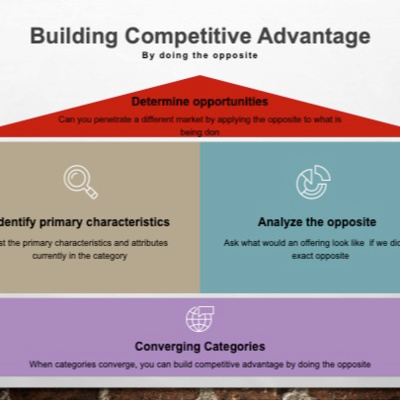
Building a strategy around doing the opposite
Key takeaways
- A powerful way to find a competitive advantage is to do the opposite of what other companies in the industry are doing. Mature industries tend to converge, creating an opportunity to appeal to customers who do not like the homogenous offerings.
- To uncover the opportunity, first list the primary characteristics and elements currently in the category and then ask yourself what would an offering look like if we did the exact opposite.
- This strategy represents a particularly appealing opportunity in the social casino and real money gaming spaces, where the offering has largely converged.
This episode is also available as a blog post: http://lloydmelnick.com/2020/11/04/building-a-strategy-around-doing-the-opposite/

Word-of-machine effect with recommendation engines
Key takeaways
- AI driven recommendation engines, popularized on Amazon and Netflix, have gone from being a competitive advantage in online and mobile apps to part of the cost of doing business.
- While AI recommendations are often closer to what customers want, people trust human recommendations more when it is based on hedonic or experiential factors, and trust machines more when it is based on utilitarian factors; this is referred to as word-of-machine effect.
- When presenting recommendations, you must be cognizant of word-of-machine effect; for recommendations around hedonistic properties try to bring in a human element (augmented intelligence) or explain that these are better recommendations.
This episode is also available as a blog post: http://lloydmelnick.com/2020/12/02/word-of-machine-effect-with-recommendation-engines/
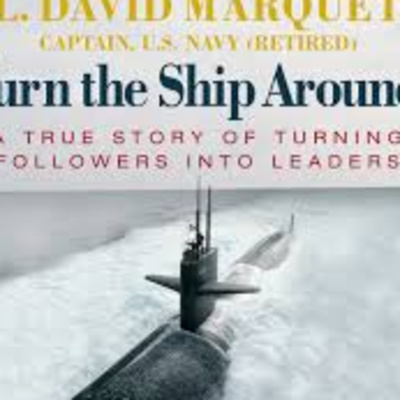
Turn Your Company Around
Key takeaways
- Less than 50 percent of people are satisfied with that job, and Covid has made the situation more dire.
- The key to improving employee satisfaction, and growing productivity, is evolving from a leader-follower approach (where you tell people what to do) to a leader-leader approach (where people control their decision-making.
- To move to a leader-leader organization, you need to empower your team (including asking them how to empower them better) and encourage deliberate action where they vocalize what they are doing rather than ask what to do.
This episode is also available as a blog post: http://lloydmelnick.com/2020/12/09/turn-your-company-around/
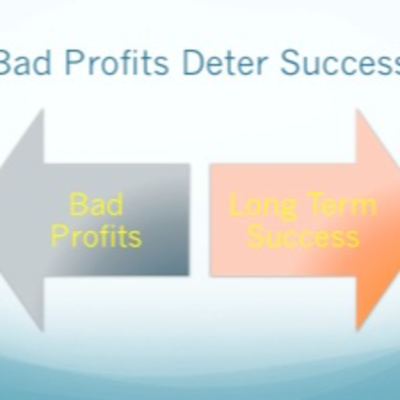
How bad profits can kill your company
- Bad profits are revenues earned at the expense of customer relationships.
- Examples include exorbitant airline change fees, unreasonable bank fees, and contracts that lock users into a bad experience.
- Bad profits, while boosting short-term numbers, reduce the lifetime value of customers and make them more likely to churn.
This episode is also available as a blog post: http://lloydmelnick.com/2015/02/26/how-bad-profits-can-kills-your-company/
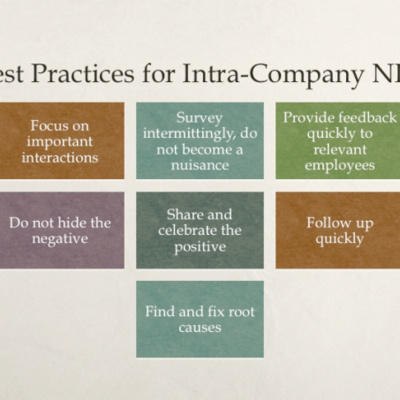
NPS is not just for customers
- Net Promoter Score (NPS), a great tool to measure customer satisfaction and create a user experience that generates higher growth, and it can also be applied to internal interactions between business units to enhance efficiency.
- Most companies simply measure internal efficiency by budget, with a lower budget implying higher efficiency even if it is not the optimal way of driving the business.
- NPS allows fast feedback and allows business units to uncover the root cause of issues.
This episode is also available as a blog post: http://lloydmelnick.com/2016/11/09/nps-is-not-just-for-customers/

Maybe your competitors are not that smart after all
- While it is important not to underestimate your competitors, you also should not consider them perfect.
- Industry leaders often maintain their position due to certain core factors and their other initiatives can be flawed, do not assume everything they do is right.
- Simply because a competitor decided to pass on an apparent opportunity does not mean they made the correct decision, they may have misjudged the opportunity and left an opening for you.
This episode is also available as a blog post: http://lloydmelnick.com/2016/12/07/maybe-your-competitors-are-not-that-smart-after-all/

Try to be the dumbest person in the room
- Rather than trying to sound the smartest at a meeting, you should aim to be the dumbest.
- It is more important to surround yourself with great people who will bring performance to a level higher than any individual can achieve.
- You not only need to get input from everyone but actually use the input to come up with better solutions than you are initially proposing.
This episode is also available as a blog post: http://lloydmelnick.com/2016/05/25/try-to-be-the-dumbest-person-in-the-room/
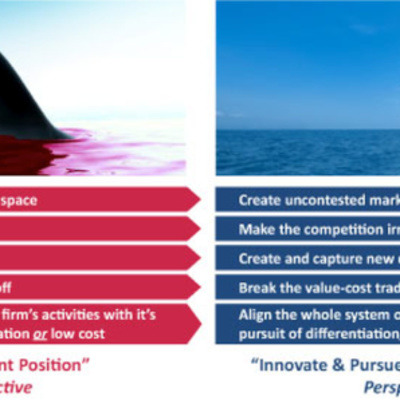
Why Blue Ocean is actually the safe route
- While most agree that a Blue Ocean strategy has the highest long-term returns, many fear it is too risky to pursue from a personal career perspective.
- The reality is that it is actually the less risky approach, as the underlying odds favor success via a Blue Ocean approach.
- Given the challenges of trying to win in a competitive industry, finding an uncontested market and growing it is a less risky approach.
This episode is also available as a blog post: http://lloydmelnick.com/2016/03/30/why-blue-ocean-is-actually-the-safe-route/
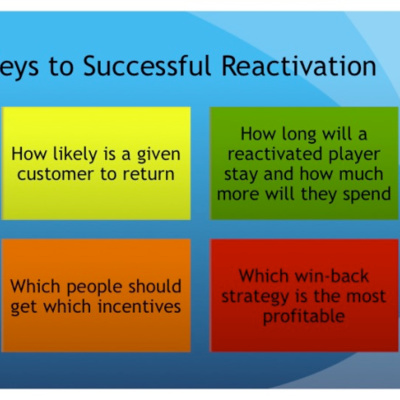
Regaining churned players
- Given the increasing costs of acquiring new users and players, more emphasis should be placed on reactivating users who have lapsed.
- Lapsed users are attractive targets as they already have shown an interest in your product, they are familiar with it and you can use their historical data to craft the best win-back proposition.
- To run a successful reactivation campaign, you need to segment lapsed players by how likely they are to return, their value once they return, what offer is most likely to re-engage them and what win-back strategy will be most profitable.
This episode is also available as a blog post: http://lloydmelnick.com/2016/04/06/regaining-churned-players/
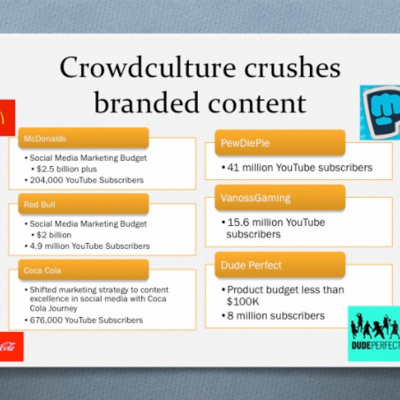
Branding is dead, long live Crowdculture
- Most social media marketing is failing because of the outdated notion of creating branded content. Huge social advertisers, like Red Bull and Coke, fail to get a fraction of the mindshare of social media celebrities like PewDiePie.
- Crowdculture brings together enthusiasts and advocates of certain beliefs and interests through social media, disintermediating traditional entertainment.
- To brand effectively with social media, companies should target crowdcultures.
- Most brands chase after trends but hundreds of companies are doing exactly the same. By targeting novel ideologies flowing out of Crowdcultures, brands can assert a point of view that stands out in the overstuffed environment.
This episode is also available as a blog post: http://lloydmelnick.com/2016/04/20/branding-is-dead-long-live-crowdculture/
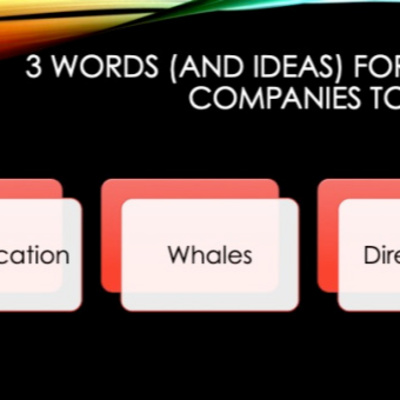
3 Words I Hate
- Game companies should avoid the phrase gamification, as their product is already a game and should be entertaining.
- Whales is an insidious phrase as it describes your best customers in a derogatory way, potentially leading to treating them in a way that destroys long-term value.
- It is misleading to use data that is directional, without statistical significance as relying on this data is like not using data at all.
This episode is also available as a blog post: http://lloydmelnick.com/2020/10/07/3-words-i-hate/
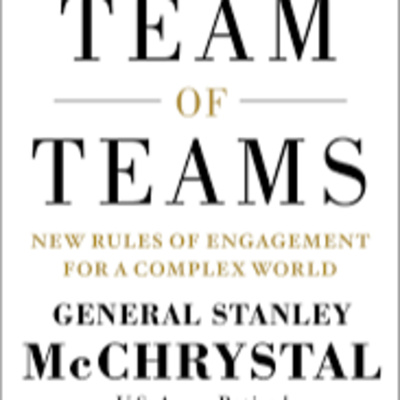
Leading in a complex world: building a team of teams
- The difference between complexity and complicated is central to building an organization that works in the 21st century. Things that are complicated may have many parts, but those parts are joined, one to the next, in straightforward and simple ways and are like an equation that needs to be solved. Things that are complex, such as insurgencies or the mobile gaming ecosystem, have a diverse range of connected parts that interact regularly.
- Accept that you will have to deal with unpredicted challenges and threats. You then build an organization and systems that can adapt rather than erecting strong, specialized defenses.
- Teams, while not always optimally efficient, are extremely adaptable. Teams overcome challenges that could never be foreseen by a single manager, their solutions often emerge as the bottom-up result of interactions, rather than from top-down orders. Your teams must then interconnect into a team of teams, rather than siloed organizations. Create an organization within which the relationships between teams resembled those between individuals on a single team.
This episode is also available as a blog post: http://lloydmelnick.com/2020/10/14/leading-in-a-complex-world-building-a-team-of-teams/
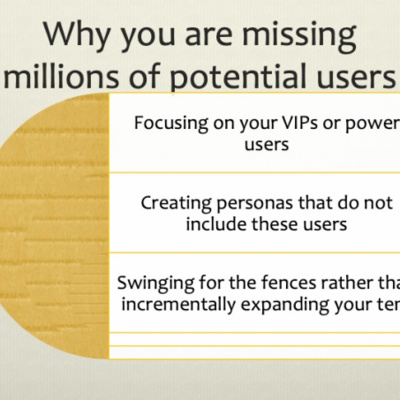
Adjacent User Theory Shows How to Supercharge Your Game’s Growth
- Adjacent users represent a great opportunity for growth. These are potential players (adjacent users) are aware of the product, maybe tried it, but are not engaged customers
- You solve for these players by looking at different states of your product (i.e. registration, play, purchase) and seeing who drops off at each of these states, then understand why these potential customers are dropping off.
- You can make your product attractive by putting yourself in the place of the adjacent user, watching them use your game or product and talking to them.
This episode is also available as a blog post: http://lloydmelnick.com/2020/10/21/adjacent-user-theory-shows-how-to-supercharge-your-games-growth/

The keys to building a resilient business
- Resilience thinking is based on the concept that things change (both within and externally to your business) and to ignore or resist this change is to increase your vulnerability and forego emerging opportunities.
- The world is not linear, instead we operate in thresholds. Like a basin, small changes keep you in a certain range but then combine to pass over a threshold and move you into a completely different business situation. You need to understand what are the key slow variables that could end up moving you into a much worse (or better) position.
- Resilience thinking represents a different way of looking at the world. It’s about seeing systems, linkages, thresholds, and cycles in both what is directly important to your business and in what drives them. It is about understanding and embracing change, as opposed to striving for constancy.
This episode is also available as a blog post: http://lloydmelnick.com/2021/01/20/the-keys-to-building-a-resilient-business/
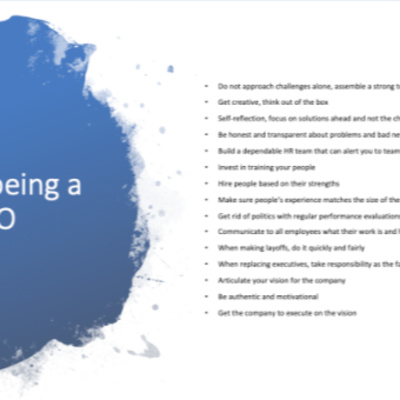
How to become successful CEO
- Being a great CEO or leader is very hard. CEOs and others leading business units are responsible not only for their fate but the fate of their company, having to make potentially life or death decisions.
- To meet The Struggle of leading a company, you need to rely on teamwork, think outside the box for solutions and continuously self-reflect.
- Great leaders must learn to be comfortable doing inherently uncomfortable things. Great CEOs have to make their unnatural job feel natural.
This episode is also available as a blog post: http://lloydmelnick.com/2020/11/11/how-to-become-successful-ceo/

Measure yourself by your worst day
- Assessing your performance when challenged is powerful, as it is easy to look good when everything goes according to plan and circumstances are calm.
- Look at whether you retreat in the face of difficulty or are reassuring and bring everyone together.
- Gaze back at your worst days and assess how you responded, how you acted towards your teammates and staff and the picks you made. Learn from these decisions so you can become the leader you want to be.
This episode is also available as a blog post: http://lloydmelnick.com/2021/01/27/measure-yourself-by-your-worst-day/

Recruiting, or why you want to Coach Team USA
Key takeaways
- A critical key to success is attracting the right talent to your team. This provides a competitive advantage over other companies.
- A key element to successful recruiting is for leadership to own and drive the process, rather than relying on HR (who are a critical component, however)
- The other key is proactively finding opportunities to raise your and your company’s profile to help your long-term recruiting capability, particularly speaking and writing openings.
This episode is also available as a blog post: http://lloydmelnick.com/2016/10/26/recruiting-or-why-you-want-to-coach-team-usa/

Dealing with risk
- We operate in a very volatile environment worldwide, with many external risks (Brexit, Trump’s victory, Russia’s invasion of Ukraine) difficult to predict but very impactful.
- To succeed, you not only should look at direct risks but overall risks to the value chain that will cascade to your company.
- The key is to understand and plan for risks that will impact competitors, your supply chain (anything from raw materials to cloud capacity),distribution channels and customers. Good companies will be ready to not only deal with but also capitalize on external changes that they do not control.
This episode is also available as a blog post: http://lloydmelnick.com/2016/11/23/dealing-with-risk/

Great products fail, here is why
Key takeaways
- Creating a great new innovative products does not guarantee success, people have to find and try it.
- The first key is to build something that people will search for. If there is little innovative or differentiated products, people will not even search for a new product.
- If customers will not find a product via search, you need to develop cues so they will infer that the product is different and valuable to them.
This episode is also available as a blog post: http://lloydmelnick.com/2016/10/05/3289/

Optimizing failure
- You need to encourage failure. Without failure, you are not pursuing enough initiatives to grow.
- To get the most from failures, and subsequently prompt people to launch initiatives that can fail, you must study failures carefully and learn about the market, customers and organization.
- You also need to circulate this information through your organization.
This episode is also available as a blog post: http://lloydmelnick.com/2016/06/29/optimizing-failure/
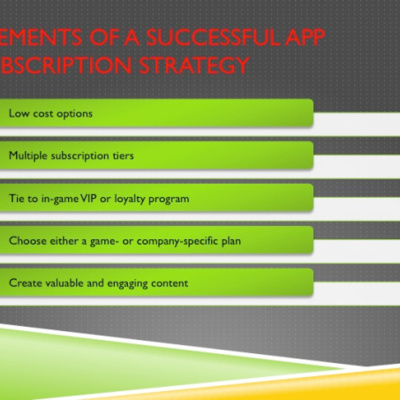
Subscriptions 3.0
- Gamers have responded to the subscriptions model since MMORPGs, though it lost favor to in-app purchases recently.
- Other areas on online entertainment – music, film, video – are driven by the subscription model.
- Subscriptions represent an opportunity, though currently unproven, to increase revenue and customer lifetime value.
This episode is also available as a blog post: http://lloydmelnick.com/2016/05/18/subscriptions-3-0/
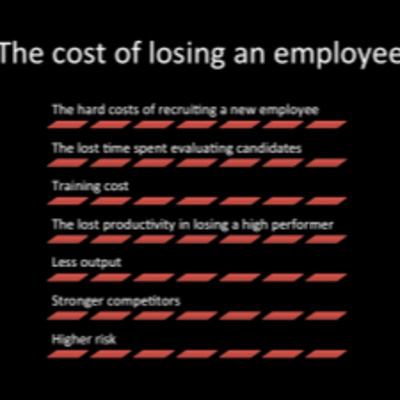
Don’t forget to recruit your own team
- There are multiple direct and indirect costs in losing an employee and they add up to a much higher expense than you realize. Thus, it is as critical or more to retain your talent.
- A critical element to retaining your talent is good communication. Understand everyone on your team, not simply your direct reports, and work with them to ensure you are both in the best possible situation.
- Your employees are not your fantasy team. As soon as you lose sight of their individual goals and needs, you set the foundation for churn.
This episode is also available as a blog post: http://lloydmelnick.com/2015/11/04/dont-forget-to-recruit-your-own-team/
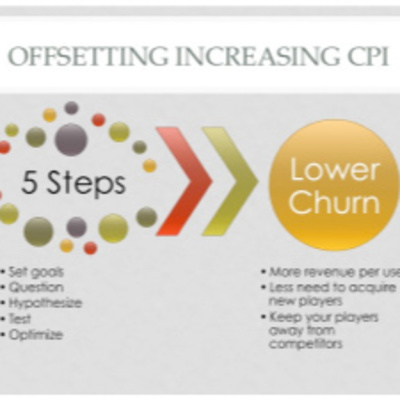
Five Steps to Reduce Churn
- With user acquisition costs increasing, reducing churn becomes increasingly important. The cost of replacing churned players is higher by definition when it costs more to get a new player.
- To reduce churn, you need to set specific goals, question why users are churning, build a hypothesis on how to combat the churn, then test, implement and refine.
- Reducing churn is not a one time event but a continuous activity. You always need to be looking at ways to reduce further churn by optimizing existing practices and coming up with new ones.
This episode is also available as a blog post: http://lloydmelnick.com/2015/10/28/5-steps-to-reduce-churn/

What poker can teach you about business
- Remove bluffing from your vocabularly. Do not try to bluff your opponent in business and do not assume they are bluffing.
- When you are in a strong position, push your advantage.
- Observe everyone you are interacting with and use those observations to put their actions into context.
This episode is also available as a blog post: http://lloydmelnick.com/2016/05/11/what-poker-can-teach-you-about-business/
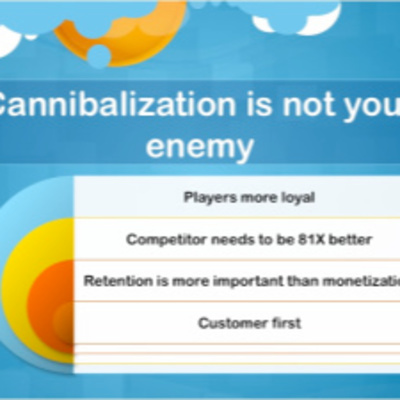
Why the fear of cannibalization is fear of the inevitable
- Concern about product cannibalization, customers switching to a less profitable product of your’s, are misguided and potentially cost your company revenue.
- If you do not direct your customers to the offerings they prefer from your company competitor’s will give them a reason to switch and you will permanently lose that customer.
- By allowing your customers to move to one of your offerings that they prefer, a competitor will need to offer them something 81X better than the product they are currently using rather than just 9X better.
This episode is also available as a blog post: http://lloydmelnick.com/2016/04/13/why-the-fear-of-cannibalization-is-fear-of-the-inevitable/

Don’t undervalue time
- Your time has a monetary value. Keep this value in mind when choosing between options that take up different levels of time or activities that have no hard cost but take time.
- One area where understanding the value of your time is critical is travel. You may have a higher expected value taking a more expensive yet more convenient route or you may find the travel overall has a negative ROI.
- Keep the value of your time in mind when choosing between personal activities; spending two hours doing something somebody can be hired to do for $10 is not a good use of time.
This episode is also available as a blog post: http://lloydmelnick.com/2015/12/09/dont-undervalue-time/

Why you should not focus just on existing players or customers
- Early users will not have the same preferences and consumption patterns as customers you attract later in the product’s life cycle.
- If you slavishly build features and new content for existing users, it may not appeal to new users.
- The key is to innovate for new users while keeping your early adopters engaged so will tolerate the changes to the product.
This episode is also available as a blog post: http://lloydmelnick.com/2015/07/08/why-you-should-not-focus-just-on-existing-players-or-customers/
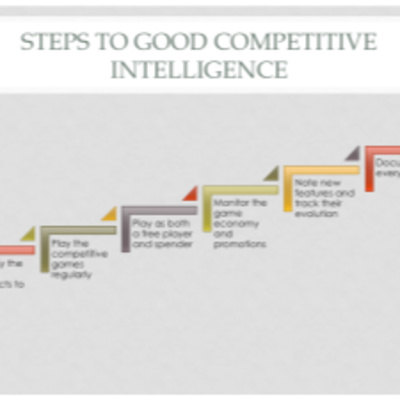
The importance of competitive intelligence
- Competitive intelligence, a staple of many industries, is often over-looked in the gaming space but can be as critical as business intelligence (analytics).
- Competitive intelligence allows you to understand the choices your players are making, both in terms of what products to play and where to monetize.
- To perform CI effectively, you need to devote resources and create a process around it where you are regularly (daily) reviewing competitive products for new features, changes in the economy, promotions, etc.
This episode is also available as a blog post: http://lloydmelnick.com/2015/04/16/the-importance-of-competitive-intelligence/
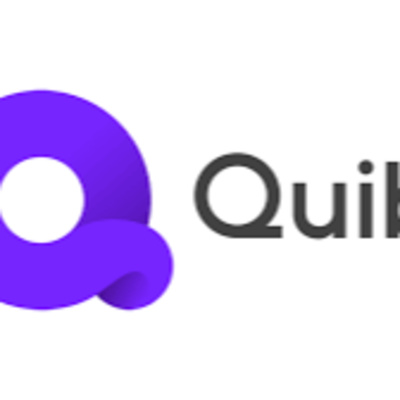
What really went wrong at Quibi
Key takeaways
- Quibi’s failure was very predictable and these predictors provide a framework of what companies need to do to succeed in the entertainment space.
- Quibi relied on a unique technology, the ability to watch content seamlessly in portrait or landscape mode, rather than relying on creating content people wanted. You cannot succeed in entertainment by relying on technology.
- Other key lessons are that great entertainment companies need to deliver a overabundance of content, much more than you expect even your heaviest users to consume, and some flagship products that forces people to try your offering.
This episode is also available as a blog post: http://lloydmelnick.com/2020/10/28/what-really-went-wrong-at-quibi/

Up-skillOR vs Up-skillEE
- Recruiting candidates with the expectation you will train (upskill) them to do the target job well shows an arrogance that you think you can train them better than anyone else has.
- Upskilling people ensures your team does not go to the next level, you set your current skillset as the ceiling.
- You also miss the opportunity to bring new skills and experiences to your team, where the new hire can make everyone else more valuable.
This episode is also available as a blog post: http://lloydmelnick.com/2020/11/24/up-skillor-vs-up-skillee/

The Power of Content
- Disney has enjoyed phenomenal growth with Disney+ and week announced its plans to accelerate this growth, showing what is critical to the success of an entertainment brand.
- The first pillar of this strategy is to release a plethora of new content in 2021, more than 25 new television series plus multiple movies, showing how critical new content is (especially telling as Disney has the strongest back catalog of content in the world).
- The second pillar is to rely on its franchises (Star Wars, Marvel, Disney characters) for this new content, showing the value of Forever Franchises in the entertainment space.
This episode is also available as a blog post: http://lloydmelnick.com/2020/12/16/the-power-of-content/
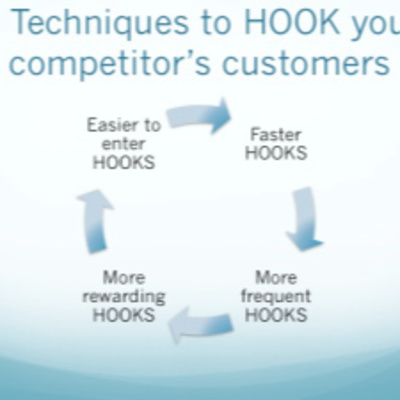
How to hook your competitor’s customers
- Habits are very strong drivers of behavior, so if you can replace using a competitor’s product with using your product with a customer, it has tremendous value to your business.
- One of the strongest techniques is creating faster HOOKS, eliminating as much complexity and steps as possible to using your product.
- Other effective ways to get your competitor’s customers are more frequent HOOKS, more rewarding HOOKS and easier to enter HOOKS.
This episode is also available as a blog post: http://lloydmelnick.com/2015/05/14/how-to-hook-your-competitors-customers/

How to develop repeat customers
- You have a 60-70% chance of selling to an existing customer versus a 5-20% chance of selling to a new customer.
- Among the ways of improving sales from existing customers, critical ones include smart CRM and not being dumb by selling your customer list.
- As the costs of getting new customers continues to increase, increasing the LTV of existing customers is critical to continued success.
This episode is also available as a blog post: http://lloydmelnick.com/2015/05/12/how-to-develop-repeat-customers/

Don’t treat employees like you do your fantasy league
- Many managers make the mistake of considering employees interchangeable, the same as they would look at with a fantasy football or baseball team.
- Making position changes for your team members, without including them in the process, makes them more likely to seek a different employer or lose motivation.
- You need to talk to and understand each employee and then make moves that are consistent with both the company’s goals and those of the employee.
This episode is also available as a blog post: http://lloydmelnick.com/2015/03/24/dont-treat-employees-like-you-do-your-fantasy-league/

Don’t say it, do it
- If your company or product is experiencing bad publicity, the best course of action is to identify the cause of this publicity rather than hiring somebody to spin a different story.
- Once you have identified what people do not like, have your company focus on the good it provides and build that out or stop doing what people dislike.
- Good publicity will follow, as it will be based on real stories.
This episode is also available as a blog post: http://lloydmelnick.com/2015/03/26/do-it-dont-say-it/

Why free stuff or lower prices don’t keep customers happy
- Giving free items or discounts to customers or players does not build long-term retention and satisfaction; it is a lazy way to get a short-term boost.
- You need to understand what it is about your product users love, either through NPS analysis, surveys or interviews.
- Once you know what they love, you should reinforce these features to increase satisfaction.
This episode is also available as a blog post: http://lloydmelnick.com/2015/03/12/why-free-stuff-or-lower-prices-doesnt-keep-customers-happy/

Creating that Aha moment
- A products aha moment is when a player or user understands the value of your product.
- To measure the aha moment, you need to find an action that people who stay are likely to take while people who do not stay will not complete.
- Once you have determined the aha metric, you should focus your company on delivering this to customers.
This episode is also available as a blog post: http://lloydmelnick.com/2015/02/12/creating-that-aha-moment/

It is NOT going to be different this time
- Whenever there is a huge spike in asset price or popularity, discount the analysis of how it is different than past spikes.
- Most of the analysis will be noise to rationalize the increase and at the end of the day the product or asset class will perform comparably to previous incidents.
- Do not try to capitalize by holding on with the plan to get out just before everyone else or discount the historical data; both are likely to result in a significant loss.
This episode is also available as a blog post: http://lloydmelnick.com/2015/02/10/it-is-not-going-to-be-different-this-time/

Individuality is the Key to Winning 1,000X
- Duke basketball coach Mike Kryzewski’s (Coach K’s) incredible success is largely due to treating every player differently.
- What motivates one person may not motivate somebody else.
- The best way to lead is to understand each individual and build a plan for each that optimizes their contribution.
This episode is also available as a blog post: http://lloydmelnick.com/2015/02/03/the-key-to-winning-1000x-individuality/
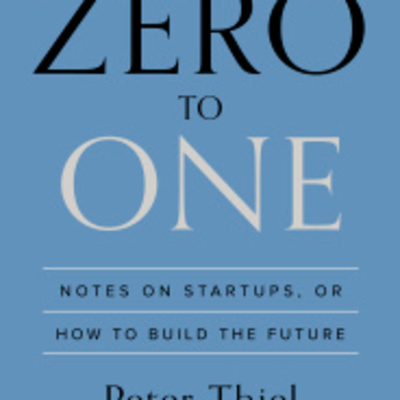
It is about creating a monopoly, not winning
- Basic economics shows that competition drives profits to zero. Thus, if you want to create a great, highly profitable completion, you must seek a virtual monopoly.
- Winning is great in sports but in business it is a false goal, winning means competition, while avoiding the competition creates excess profits.
- To create a business that enjoys monopoly profits, leverage proprietary technology, network effects, economies of scale and a strong brand.
This episode is also available as a blog post: http://lloydmelnick.com/2015/02/05/it-is-about-creating-a-monopoly-not-winning/